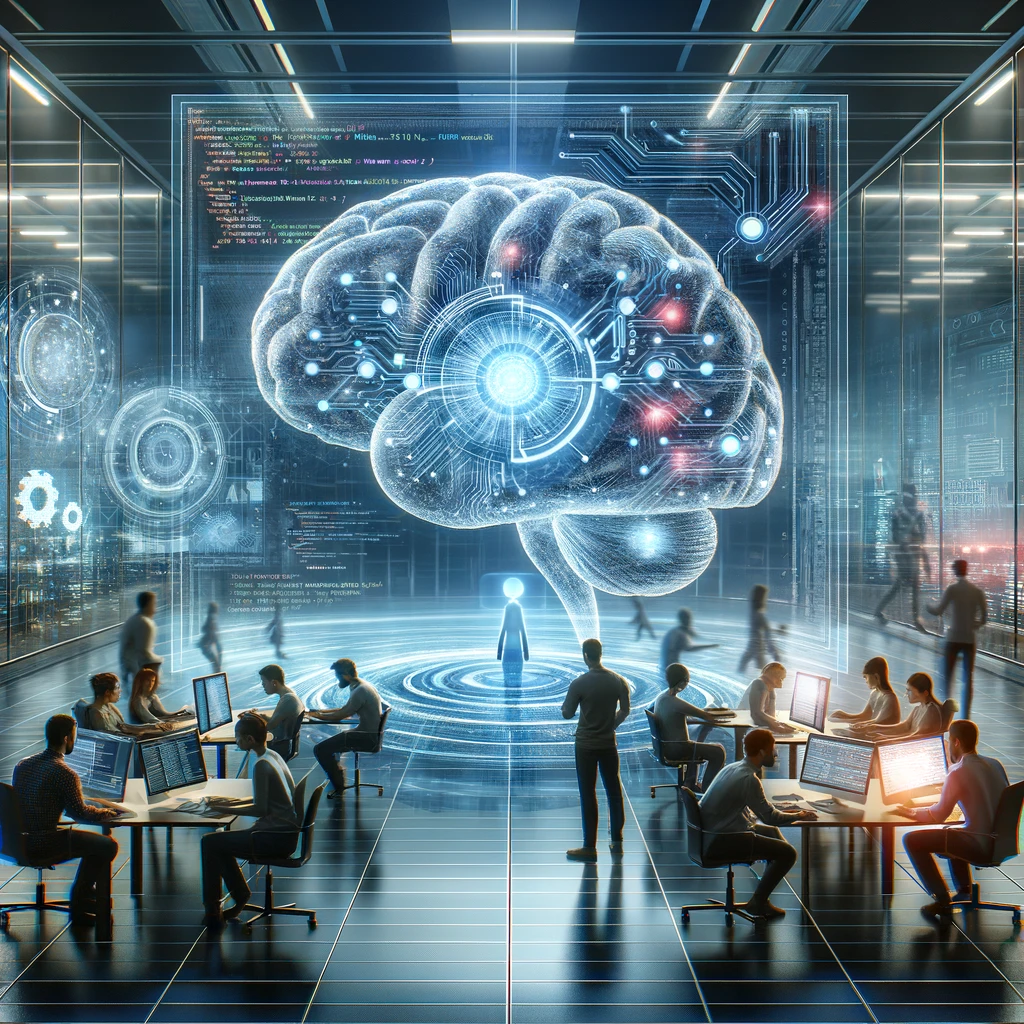The Future of Software Engineering in the Age of AI - Demystifying the Hype Around Devin
March 23, 2024
After my initial exploration into Cognition AI's pioneering AI, Devin, I've been drawn further into understanding its implications. My opening piece shed light on Devin's remarkable abilities, igniting a vital conversation about AI's transformative role in software engineering and its implications for our professional trajectories. In this follow-up, I aim to offer a deeper, more nuanced examination of how our careers might evolve in an AI-enhanced landscape, tailored for a technical audience seeking insights into the future of our industry.

In recent times, the tech community has been abuzz with discussions about Devin (by Cognition AI) purportedly the world's first AI software engineer. While much of what we know comes from a polished demo, and the tool remains shrouded in mystery, it's sparked a widespread debate: are software engineering jobs at risk?
Unpacking the Reality
First, let's tackle the elephant in the room: will "Devin" succeed? It's no secret that startups face daunting odds, and despite significant investment, not every venture yields a groundbreaking product. Assuming "Devin" does exceed expectations, its practical utility remains a question. Software development is notoriously complex, riddled with legacy systems and undocumented nuances - areas where AI has historically stumbled.
Comparisons to no-code tools, which promised to democratize software development yet often fell short, are inevitable. These tools, while useful, haven't supplanted the need for skilled engineers in critical sectors like healthcare and transportation. Likewise, claims that AI will render traditional software development obsolete are exaggerated. Such assertions often come from vested interests, aiming more to stir the stock market than to reflect the nuanced reality of technology's impact on our jobs.
The Slow March of Adoption
Even if "Devin" becomes a formidable tool, the transition won't be overnight. History shows that technology adoption, especially in sectors reliant on legacy systems, is a gradual process. This delay offers professionals time to adapt and evolve.
Moreover, not all industries can or will embrace AI tools swiftly, particularly where security and privacy are paramount. The persistence of traditional practices, despite technological advances, underscores the complexity of real-world systems and the ongoing need for human expertise.
The Invaluable Human Element
Software engineering is more than coding; it's about problem-solving, innovation, and adapting to new tools while understanding fundamental principles. As AI reshapes our tools and processes, the core skills of engineering remain indispensable. From FoxPro to SQL Server, the underlying concepts of data management and software architecture continue to guide us, regardless of the specific technologies in use.
Navigating the AI Landscape
The emergence of AI in software development doesn't spell the end of engineering jobs but signals a shift in focus. Automation will likely take over repetitive tasks, yet this opens the door to new challenges and opportunities. The demand for innovative features and robust systems ensures a continuous need for skilled developers.
Rather than succumbing to fear-mongering, it's crucial for professionals to embrace lifelong learning and adaptability. Exploring AI tools and integrating them into your workflow can enhance efficiency and creativity, not replace the human touch that's essential to developing meaningful and complex software solutions.
Conclusion: Embrace Change, Not Fear
As we stand on the cusp of potentially transformative advancements in AI, it's vital to approach the future with an open mind and a commitment to growth. The narrative that AI will make software engineers obsolete overlooks the complexity of our field and the endless possibilities for those willing to adapt.
If you're passionate about coding and innovation, let curiosity and a dedication to learning guide your journey. The future of software engineering is bright, with AI serving as a tool to augment our capabilities, not a threat to our livelihood.
Remember, the key to thriving in this evolving landscape is not fear, but resilience, adaptability, and a relentless pursuit of knowledge. Keep coding, keep learning, and let's navigate the future of technology together.
